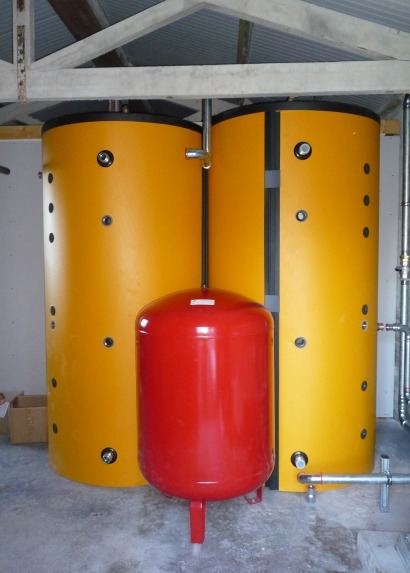
After its first full six months of operation the Renewable Heat Incentive has seen registrations with Ofgem way below the level predicted by Government but climbing steadily. Their report shows just 89 registrations throughout Britain, 15 of them in Scotland of which 13 were for solid biomass installations. Growing pains were always to be expected, particularly for such a ground-breaking scheme, and it is hoped that the slow process will pick up speed as both Ofgem and the industry get used to it.
With the popularity of biomass boilers growing as a result of the generous incentive, the time is right to throw a spotlight on what separates a really successful wood chip or log system from the unfortunate number which, with hindsight, are seen as compromised. According to Joe Fergusson, Microgeneration Consultant with Bell Ingram, “The critical but often overlooked fact about chip and log heating is that it is not just the installation of a piece of hardware, but a never-ending logistical exercise – not just a purchase but a ‘lifestyle choice’.”
The choosing of a boiler, the capital cost and the hassle involved in the installation is soon forgotten but the unending task of managing and supplying the fuel continues ad infinitum. The cost of fuel stores and fuel delivery arrangements will be a small proportion of the total project cost but, assuming that the boiler and heat stores have been correctly sized, it is the aspect which will impact on the success of the scheme more than any other.
Sadly, there are many examples of chip boilers around, and more being put in, where the design effort has been put into achieving the cheapest and easiest installation which results in a fuel store which is either too small for the situation, resulting in unnecessarily frequent refills, or it is awkward to fill, resulting in deliveries sometimes taking an hour when the job should only take a few minutes. This may not seem that important when perhaps tens of thousands of pounds are to be saved on the capital cost, but the result will be higher heating costs indefinitely and whilst the price of hassle is difficult to gauge, it certainly rises with repetition.
Fergusson points out that field trips to Finland and Austria, interviewing people who have now lived with chip heating for decades, have concluded that the ability to quickly tip two trailer loads into a large bunker is simply the most important feature for a happy life and that the considerable cost of this should not be seen as ‘additional’ but a core aspect of the scheme design. The exception to this is where the seasonal chip store is adjacent to the boiler house.
Regarding log systems, the simplicity of the concept is particularly appealing to those with their own forestry and surplus labour for log handling; tree trunks are processed into split logs, left to dry for at least two summers then placed in a boiler. However, those tempted must take time to ponder seriously the fact that the daily labour is not optional. If somebody doesn’t stack the boiler one day, the heating will not work, and the future is a long time. Of course there are successful exemplary systems - yours may become one of them - but there are also many people and marriages that have been brought to breaking point by the burden. The correct sizing of the boiler and thermal stores to the situation is even more critical with logs than with chips.
The lesson is that to be successful, biomass project planners must concentrate on the long term view. This is much easier to achieve if they are not the ones supplying and installing the boiler. There is a strong case for an experienced independent renewable energy or building services consultant to do this job and to specify the design and components to the suppliers. This can impact not just on the fuel system but other aspects of the system’s efficiency as well. The fees for this will add a few months to the payback on the project, and added capital cost perhaps a few more months, but the result is likely to be more happiness in the world.
[Editor's note: This piece was kindly supplied by Joe Fergusson at Scottish land agency, Bell Ingram, which recently installed a pellet boiler at their HQ in Perth (see inset).]
For additional information:

